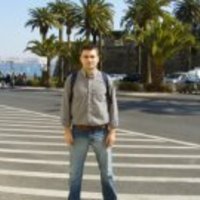
António B. Moniz
Coordinator of the PhD Programme on "Technology Assessment" at Nova School of Sciences and Technology (Universidade Nova de Lisboa-UNL).
Sociologist, specialized in the Labour and Organizations domain (ISCTE, 1980), Sociology Assistant in Universidade dos Açores (1980-83) and in FCT-UNL from 1983 to 1992.
Was Researcher at ITAS-Karlsruhe Institute of Technology, and is Associate Professor (since 1999) of Industrial Sociology at Faculdade de Ciências e Tecnologia (UNL), (was Assistant Professor from 1992 to 1999). Was "Gastwissenschaftler" at the ITAS-Institute of Technology Assessment and Systems Analysis from Forschungszentrum Karlsruhe during 2007-08, and at the Fraunhofer Institut für Systemtechnik und Innovationsforschung (ISI-FhG), from 2002 to 2004. Was "Visiting Researcher" at the Brown University, Providence, Rhode Island (1999) and McMaster University, Ontario, Canada (2017).
He is an executive elected member of the Research Committees RC23 on Sociology of Science and Technology (2014-18), and RC30 Sociology of Work (1998-2002) of ISA-International Sociological Association. Was also Portuguese representative in the Steering Committee of "European Social Survey" organized by European Science Foundation (Strasbourg, France), from 1997 to 2001. From 2006 is the Portuguese member at TC9 of International Federation of Information Processing - IFIP.
Participated in evaluation activities regarding European research Programs , and at the European Science Foundation .
Supervisors: Juan Jose Castillo - Univ. Complutense Madrid
Address: Institute of Technology Assessment and System Analysis - ITAS
Karlsruhe Institute of Technology - KIT
76344 Eggenstein
Germany
Sociologist, specialized in the Labour and Organizations domain (ISCTE, 1980), Sociology Assistant in Universidade dos Açores (1980-83) and in FCT-UNL from 1983 to 1992.
Was Researcher at ITAS-Karlsruhe Institute of Technology, and is Associate Professor (since 1999) of Industrial Sociology at Faculdade de Ciências e Tecnologia (UNL), (was Assistant Professor from 1992 to 1999). Was "Gastwissenschaftler" at the ITAS-Institute of Technology Assessment and Systems Analysis from Forschungszentrum Karlsruhe during 2007-08, and at the Fraunhofer Institut für Systemtechnik und Innovationsforschung (ISI-FhG), from 2002 to 2004. Was "Visiting Researcher" at the Brown University, Providence, Rhode Island (1999) and McMaster University, Ontario, Canada (2017).
He is an executive elected member of the Research Committees RC23 on Sociology of Science and Technology (2014-18), and RC30 Sociology of Work (1998-2002) of ISA-International Sociological Association. Was also Portuguese representative in the Steering Committee of "European Social Survey" organized by European Science Foundation (Strasbourg, France), from 1997 to 2001. From 2006 is the Portuguese member at TC9 of International Federation of Information Processing - IFIP.
Participated in evaluation activities regarding European research Programs , and at the European Science Foundation .
Supervisors: Juan Jose Castillo - Univ. Complutense Madrid
Address: Institute of Technology Assessment and System Analysis - ITAS
Karlsruhe Institute of Technology - KIT
76344 Eggenstein
Germany
less
Related Authors
Paulo Vitorino Fontes
Universidade dos Açores
Alison Neilson
Universidade Nova de Lisboa
Paula Casaleiro
University of Coimbra
João Dias
Universidade do Algarve
Marco Pais Neves dos Santos
Universidade Aberta/portuguese Open University
InterestsView All (55)








Uploads
Books by António B. Moniz
represented in contrasting national settings in Europe.
Thus, this study is presenting information that is taken from other foresight experiments and its methodological features. The main needs for a scenario structure are provided in the explanation of four steps in order to develop such a process. The first step establishes a model on the changing structures of work in the knowledge-based society and a set of dimensions related with the central WORKS theoretical framework with the key variables and indicators that allows to find the information to be developed in step 3 (drivers of change). The second step provides the information about these dimensions in the theoretical analyses and complements it with data from the quantitative and qualitative pillars. It also could identify the main components as well as the variables more important to understand the changes, observing and defining the relations between them and clarify the trends. In the final step, one should define a set of periods for scenarios, and establish a set of possible scenarios of the different ways work organisation might evolve into different models of a knowledge-based society. Some examples are presented.
1.1 Organisational and employment structures – B 5
1.2 Work patterns and terms of employment – C 18
1.3 Quality of life – D 29
1.4 Policy of working life – E 38
2 Analyses of case studies 49
2.1 Introduction 49
2.2 Occupational studies; synthesis report 49
2.3 Design in clothing 50
2.4 R&D in ICT 52
2.5 Production in clothing 57
2.6 Production in Food 60
Published by Celta Editora, Oeiras, 2000
Published by CEFAMOL, Marinha Grande, 2000
published by the Observatório do Emprego e Formação Profissional, Lisboa, 2000
Published by Instituto Cultural de Ponta Delgada, 2000
Papers by António B. Moniz
represented in contrasting national settings in Europe.
Thus, this study is presenting information that is taken from other foresight experiments and its methodological features. The main needs for a scenario structure are provided in the explanation of four steps in order to develop such a process. The first step establishes a model on the changing structures of work in the knowledge-based society and a set of dimensions related with the central WORKS theoretical framework with the key variables and indicators that allows to find the information to be developed in step 3 (drivers of change). The second step provides the information about these dimensions in the theoretical analyses and complements it with data from the quantitative and qualitative pillars. It also could identify the main components as well as the variables more important to understand the changes, observing and defining the relations between them and clarify the trends. In the final step, one should define a set of periods for scenarios, and establish a set of possible scenarios of the different ways work organisation might evolve into different models of a knowledge-based society. Some examples are presented.
1.1 Organisational and employment structures – B 5
1.2 Work patterns and terms of employment – C 18
1.3 Quality of life – D 29
1.4 Policy of working life – E 38
2 Analyses of case studies 49
2.1 Introduction 49
2.2 Occupational studies; synthesis report 49
2.3 Design in clothing 50
2.4 R&D in ICT 52
2.5 Production in clothing 57
2.6 Production in Food 60
Published by Celta Editora, Oeiras, 2000
Published by CEFAMOL, Marinha Grande, 2000
published by the Observatório do Emprego e Formação Profissional, Lisboa, 2000
Published by Instituto Cultural de Ponta Delgada, 2000
Session on Teaching, Learning and Engaging in, through and about Technology Assessment, PACITA 2nd European Conference on TA - Berlin, 27 February 2015
Why a Phd programme on TA?
PhD programme on TA starts at UNL in 2009
Student numbers
Interdisciplinarity
Common TA themes to be learned (60 ECTS)
Applied research (180 ECTS)- thesis research
Some joint papers made under international cooperation
Conclusions
Opening Session
Dean of FCT-UNL - Prof. Fernando Santana
President of DCSA (Dept. Applied Social Sciences) - Prof. Maria Paula Diogo
Coordinator of PhD program - Prof. António Moniz
Keynote speaker - Prof. Armin Grunwald (ITAS-KIT): Responsible Innovation: challenges to technology assessment
Moderator - Prof. João Caraça (Found. Calouste Gulbenkian
Discussion
Leonhard Hennen (ITAS-KIT) - Technology Assessment Activities at the European Parliament
PhD programm on Technology Assessment
at Auditorium FCT-UNL, Campus de Caparica, Universidade Nova de Lisboa
Published by Instituto Cultural de Ponta Delgada, 2000